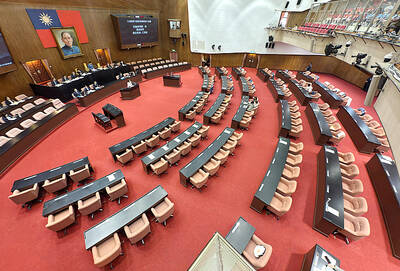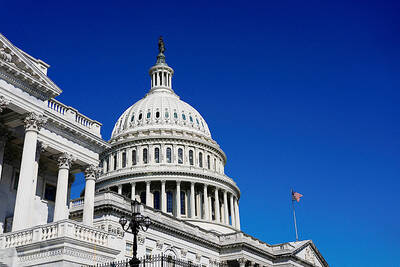China yesterday tried to cool a dispute with Washington over cyberspying, reminding the US of its need for Chinese help over North Korea and appealing to it not to hurt cooperation in anti-terrorism and other areas.
The effort at damage control, despite the outraged tone of Beijing’s rejection of spying allegations last week, reflects the importance of commercial and political ties between the two biggest economies.
“The row between China and the United States over cybersecurity should not become a rift to undermine the two sides’ cooperation on other issues of common concern,” Xinhua news agency said in a commentary.
The US filed criminal charges last week against five Chinese military officers accused of breaking into computers of major US firms to steal commercial secrets. China has denied the accusations.
Yesterday’s commentary called on Washington to “refrain from taking further wrongful steps.”
The appeal came just a day after a Chinese Cabinet agency issued a sharply worded report that said pervasive US cyberspying against Chinese targets “flagrantly breached” international law. It called on Washington to stop.
Xinhua said that Washington needs Beijing’s support in trying to resolve tensions on the Korean Peninsula and to combat climate change, while China is an important market for US companies.
“The United States is more than an important trading partner, but also a staunch fighter against terrorism,” Xinhua said. “The US role in eliminating terrorism globally has become especially important for China now, when it has been exposed to dangerous terrorist attacks in the past few months.”

‘WIN-WIN’: The Philippines, and central and eastern European countries are important potential drone cooperation partners, Minister of Foreign Affairs Lin Chia-lung said Minister of Foreign Affairs Lin Chia-lung (林佳龍) in an interview published yesterday confirmed that there are joint ventures between Taiwan and Poland in the drone industry. Lin made the remark in an exclusive interview with the Chinese-language Liberty Times (the Taipei Times’ sister paper). The government-backed Taiwan Excellence Drone International Business Opportunities Alliance and the Polish Chamber of Unmanned Systems on Wednesday last week signed a memorandum of understanding in Poland to develop a “non-China” supply chain for drones and work together on key technologies. Asked if Taiwan prioritized Poland among central and eastern European countries in drone collaboration, Lin

The Chien Feng IV (勁蜂, Mighty Hornet) loitering munition is on track to enter flight tests next month in connection with potential adoption by Taiwanese and US armed forces, a government source said yesterday. The kamikaze drone, which boasts a range of 1,000km, debuted at the Taipei Aerospace and Defense Technology Exhibition in September, the official said on condition of anonymity. The Chungshan Institute of Science and Technology and US-based Kratos Defense jointly developed the platform by leveraging the engine and airframe of the latter’s MQM-178 Firejet target drone, they said. The uncrewed aerial vehicle is designed to utilize an artificial intelligence computer

The Chinese Nationalist Party (KMT) caucus yesterday decided to shelve proposed legislation that would give elected officials full control over their stipends, saying it would wait for a consensus to be reached before acting. KMT Legislator Chen Yu-jen (陳玉珍) last week proposed amendments to the Organic Act of the Legislative Yuan (立法院組織法) and the Regulations on Allowances for Elected Representatives and Subsidies for Village Chiefs (地方民意代表費用支給及村里長事務補助費補助條例), which would give legislators and councilors the freedom to use their allowances without providing invoices for reimbursement. The proposal immediately drew criticism, amid reports that several legislators face possible charges of embezzling fees intended to pay

REQUIREMENTS: The US defense secretary must submit a Taiwan security assistance road map and an appraisal of Washington’s ability to respond to Indo-Pacific conflict The US Congress has released a new draft of the National Defense Authorization Act (NDAA), which includes up to US$1 billion in funding for Taiwan-related security cooperation next year. The version published on Sunday by US House of Representatives Speaker Mike Johnson removed earlier language that would have invited Taiwan to participate in the US-led Rim of the Pacific Exercise (RIMPAC). A statement on Johnson’s Web page said the NDAA “enhances U.S. defense initiatives in the Indo-Pacific to bolster Taiwan’s defense and support Indo-Pacific allies.” The bill would require the US secretary of defense to “enable fielding of uncrewed and anti-uncrewed systems capabilities”